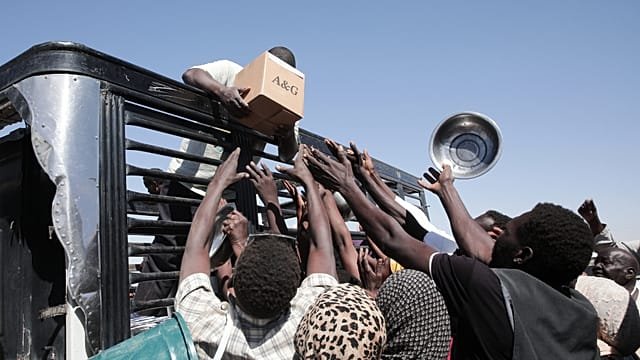The United Nations Deputy Secretary-General warned world leaders on Monday that food “has become a weapon” in various conflicts around the planet.
Speaking to the UN Security Council, Amina Mohammed said armed conflict and violence are the leading causes of food insecurity in most of the world’s hunger hotspots.
“This is the new arithmetic of conflict: when food systems are attacked, weaponized, the impact is global,” she said.
“Through deliberate starvation tactics, which we are seeing all too often, including recently in Gaza. But also, through the systematic destruction of agricultural systems,” she added.
Last year, 295 million people faced acute hunger — 14 million more than the year before.
The UN deputy chief denounced countries’ investment “in military expenditure rather than putting and end of hunger.”
Gaza, Sudan and Yemen are among the countries and territories with the highest levels of acute food insecurity, according to UN reports.
The Integrated Food Security Phase Classification (IPC) declared famine in Gaza in August and in the Sudanese cities of El-Fasher and Kadugli in November.
Leaders and UN representatives also highlighted the situation of Africa. The African Union Special Envoy for Food Systems described the continent as “the epicentre of global hunger.”
“Our continent holds 60 percent of the world’s arable land, the youngest population, and the greatest potential for innovation in sustainable agriculture,” said Sierra Leone President Julius Maada Bio.
“What we need is not sympathy, but solidarity — to unlock Africa’s power to feed itself and to help feed the world,” he added.
UN representatives also underlined the significance of humanitarian aid “to prevent and address hunger in conflict.”






